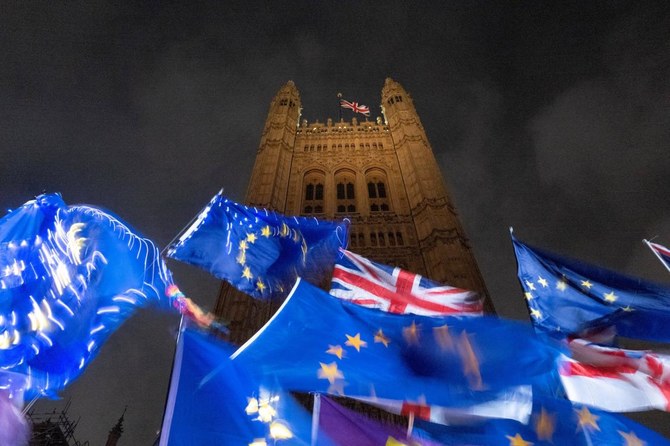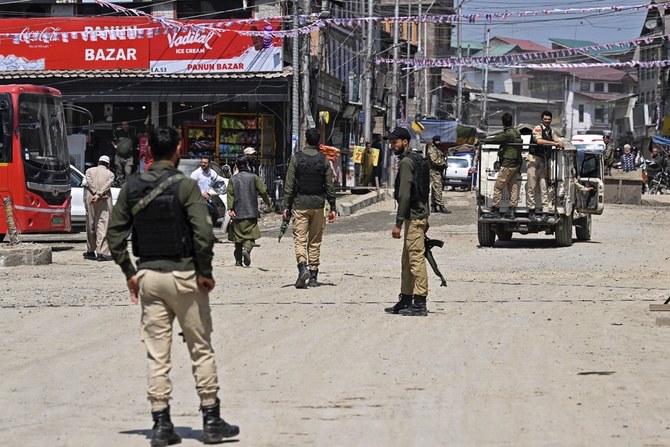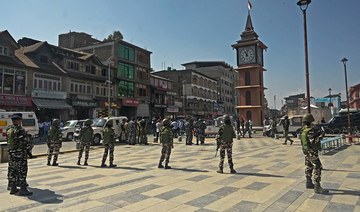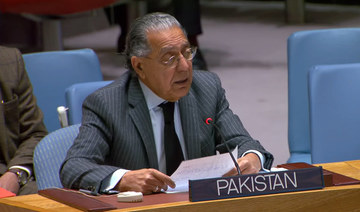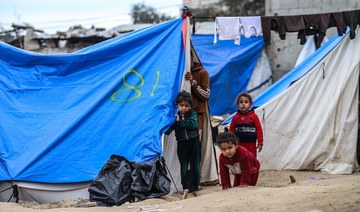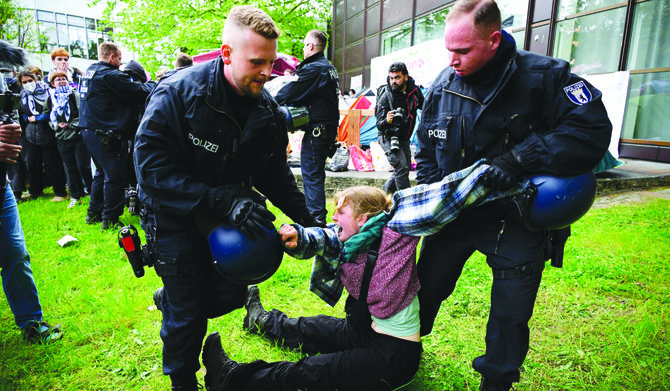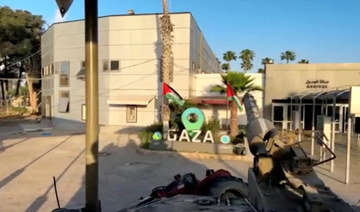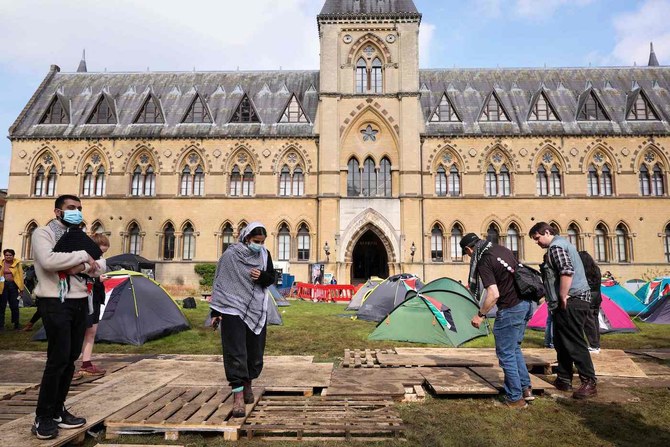LONDON: Marlies Haselton has called Britain home for more than 30 years. The Dutch national married a Briton, had her children there, and considers herself “part and parcel” of the UK. Until Britain’s divorce from the European Union, she had never given a thought to her immigration status in the UK.
Haselton, 55, is among the millions of Europeans who have freely lived, worked and studied in the UK for decades, but whose rights are no longer automatically granted due to Brexit. Britain’s government introduced a “settlement” plan for the country’s large European migrant community in 2019, and the deadline for applications is Wednesday.
From Thursday, any European migrant who hasn’t applied will lose their legal right to work, rent housing and access some hospital treatments or welfare benefits in the UK. They may even be subject to deportation.
Meanwhile, the freedom of movement that over 1 million Britons have long enjoyed in EU countries is also ending. Those applying for post-Brexit residency permits in France also face a deadline on Wednesday.
Campaigners in the UK are worried that tens or even hundreds of thousands of Europeans may not have applied by the deadline. Many older people who have lived in the UK for decades are not aware they have to apply, and official figures show that only 2 percent of applicants were 65 years old or older. Many parents also don’t realize they have to apply for their children, migrants rights’ groups say.
Other vulnerable people, such as an estimated 2,000 children in social care, also risk falling through the cracks and ending up with no legal status.
For Haselton and many others, it’s a moment that drives home the impact of Britain’s referendum to leave the EU five years ago. Although Haselton successfully received her “settled” status, meaning she can reside permanently in the UK, she said the whole process has made her feel insecure about the life she built in Britain.
“I don’t feel settled,” she said. “I’m concerned about the future. I just don’t have a safe feeling about growing old here as a foreigner. The sense of home I used to have is gone.”
Britain’s government says some 5.6 million people — the majority from Poland and Romania — have applied, far more than the initial estimates. While about half were granted settled status, some 2 million migrants who haven’t lived in the UK long enough were told they have to put in the paperwork again when they have completed five years of residency in the country.
And about 400,000 people are still in limbo because they’re waiting to hear a decision, said Lara Parizotto, a campaigner for The3million, a group set up after the Brexit referendum to lobby for the rights of EU citizens in the UK
“These are the people we’re hearing from a lot,” she said. “You want to be secure and safe, you want to continue making plans for your future … you can imagine how complex it is not to have that certainty in your life right now when things are about to change so much.”
Daria Riabchikova, a Russian woman who applied in February as the partner of a Belgian citizen living in the UK, said it’s been “incredibly frustrating” waiting four months for her paperwork to be processed. She fears the delay will affect a new job she is about to start.
“I feel like a third-rate citizen, despite working here and paying taxes with my partner and living here, and contributing to the past year of struggle with the pandemic,” she said. “Now I can’t even have my straightforward application processed on time.”
Figures are not available to show exactly how many people will have missed the deadline. But even a small percentage of the European population in the UK would total tens of thousands of people, Parizotto said. In recent weeks, the 25-year-old Brazilian-Italian has traveled with other volunteers across England to urge European communities working in rural farms and warehouses to sign up before it’s too late.
One key concern is that the immigration policy could leave a disastrous legacy similar to Britain’s “Windrush” scandal, when many from the Caribbean who legally settled in the UK decades ago were wrongly caught up in tough new government rules to crack down on illegal immigration.
Many in the “Windrush generation” — named after the ship that carried the first post-war migrants from the West Indies — lost their homes and jobs or were even deported simply because they couldn’t produce paperwork proving their residency rights.
Many Europeans, especially young people whose parents failed to apply, “won’t necessarily realize they have lost their status right away,” said Madeleine Sumption, director of Oxford University’s Migration Observatory.
“For some, it will only become clear later on — for example, when they get a new job or need to be treated in hospital,” she said. “It may be many more years before the legal, political, economic and social consequences start to emerge.”
Britain’s government has conceded that it will give the benefit of the doubt to people who have “reasonable grounds” for applying late, but that hasn’t eased campaigners’ worries. Many, including those who secured settled status, no longer feel confident in their future in Britain.
Elena Remigi, a translator originally from Milan who founded “In Limbo,” a project to record the voices of EU nationals in the UK since the Brexit referendum, said many Europeans say they still feel betrayed by how their adopted country treated them.
“It is really sad that people who were living here before are now made to feel unwelcome and have to leave,” she said. “That’s really hard for some people to forgive.”
Haselton, the Dutch migrant, said her British husband is mulling moving the family to the Netherlands as a direct consequence of Brexit. She is torn.
“I still love this country, it would break my heart if I had to move,” she said. “At the same time I’m not sure I want to stay. When it comes to a sense of feeling that you belong, that isn’t something that you can do with a piece of paper.”



